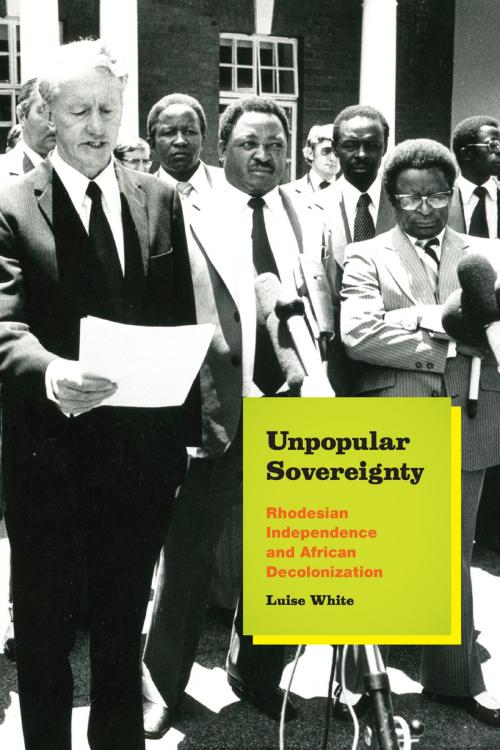Unpopular Sovereignty
Rhodesian Independence and African Decolonization
Nonfiction, History, Africa, Social & Cultural Studies, Social Science, Anthropology| Author: | Luise White | ISBN: | 9780226235226 |
| Publisher: | University of Chicago Press | Publication: | March 23, 2015 |
| Imprint: | University of Chicago Press | Language: | English |
| Author: | Luise White |
| ISBN: | 9780226235226 |
| Publisher: | University of Chicago Press |
| Publication: | March 23, 2015 |
| Imprint: | University of Chicago Press |
| Language: | English |
In 1965 the white minority government of Rhodesia (after 1980 Zimbabwe) issued a unilateral declaration of independence from Britain, rather than negotiate a transition to majority rule. In doing so, Rhodesia became the exception, if not anathema, to the policies and practices of the end of empire. In Unpopular Sovereignty, Luise White shows that the exception that was Rhodesian independence did not**,** in fact, make the state that different from new nations elsewhere in Africa: indeed, this history of Rhodesian political practices reveals some of the commonalities of mid-twentieth-century thinking about place and race and how much government should link the two.
White locates Rhodesia’s independence in the era of decolonization in Africa, a time of great intellectual ferment in ideas about race, citizenship, and freedom. She shows that racists and reactionaries were just as concerned with questions of sovereignty and legitimacy as African nationalists were and took special care to design voter qualifications that could preserve their version of legal statecraft. Examining how the Rhodesian state managed its own governance and electoral politics, she casts an oblique and revealing light by which to rethink the narratives of decolonization.
In 1965 the white minority government of Rhodesia (after 1980 Zimbabwe) issued a unilateral declaration of independence from Britain, rather than negotiate a transition to majority rule. In doing so, Rhodesia became the exception, if not anathema, to the policies and practices of the end of empire. In Unpopular Sovereignty, Luise White shows that the exception that was Rhodesian independence did not**,** in fact, make the state that different from new nations elsewhere in Africa: indeed, this history of Rhodesian political practices reveals some of the commonalities of mid-twentieth-century thinking about place and race and how much government should link the two.
White locates Rhodesia’s independence in the era of decolonization in Africa, a time of great intellectual ferment in ideas about race, citizenship, and freedom. She shows that racists and reactionaries were just as concerned with questions of sovereignty and legitimacy as African nationalists were and took special care to design voter qualifications that could preserve their version of legal statecraft. Examining how the Rhodesian state managed its own governance and electoral politics, she casts an oblique and revealing light by which to rethink the narratives of decolonization.















